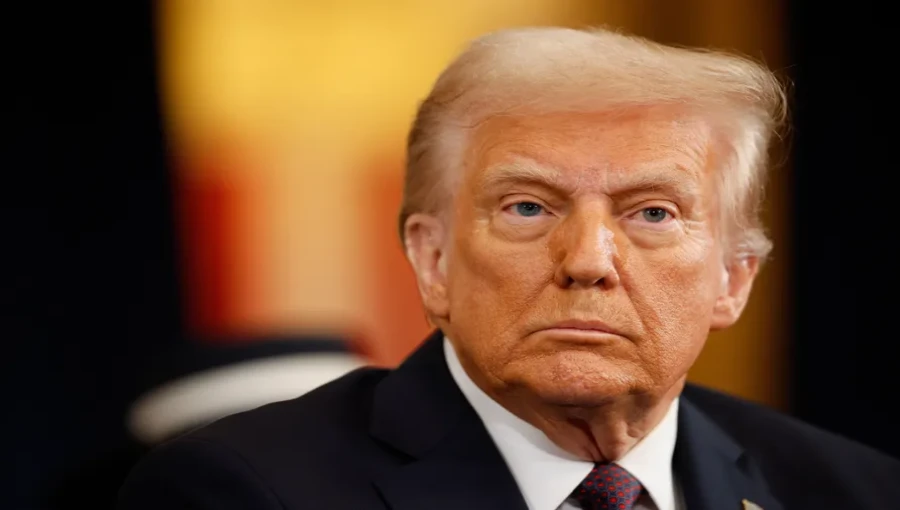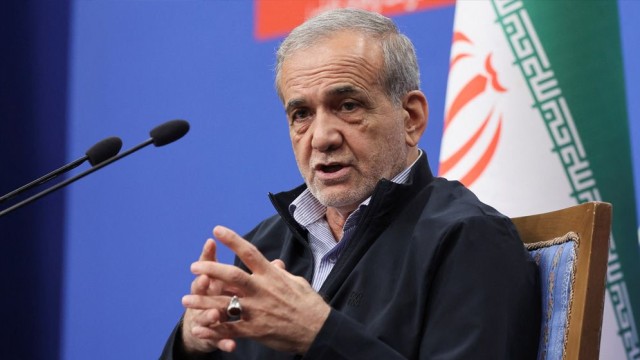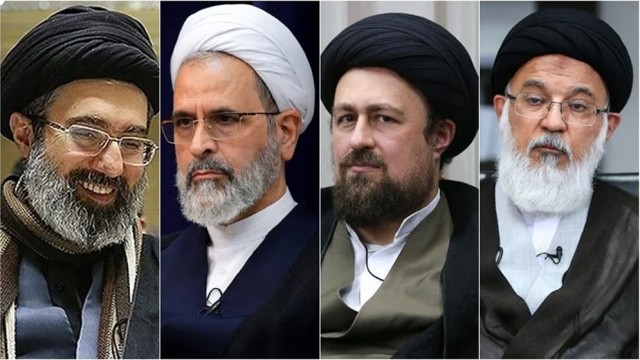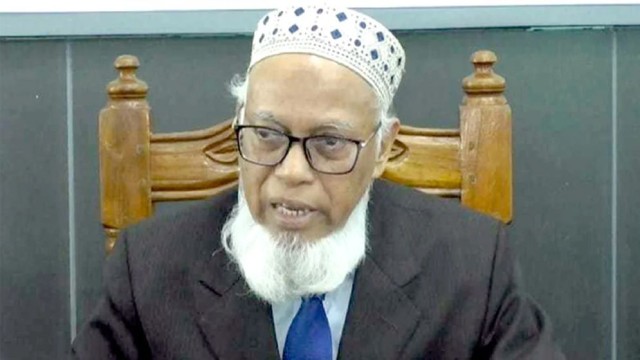Washington, D.C., Jan 24, (V7N) - On Thursday, President Donald Trump had a day marked by legal challenges and political victories as he continued to push forward his ambitious agenda just days after taking office. His efforts to reshape U.S. policies faced significant hurdles, but his cabinet nominations gained ground in the Senate, while he also made waves on the international stage.
Birthright Citizenship Blocked
In a setback for the Trump administration, a federal judge temporarily blocked a key executive order that aimed to end birthright citizenship. U.S. District Judge John Coughenour ruled that the move was "blatantly unconstitutional," halting its implementation. The order, which was signed by Trump on Monday, sought to prevent the automatic granting of U.S. citizenship to children born in the country to foreign nationals, including those residing illegally. The decision came after a coalition of Democratic-led states filed lawsuits arguing that the executive order violated the Constitution, specifically the 14th Amendment, which guarantees birthright citizenship. The order had sparked national controversy, with critics claiming it was an unlawful and unconstitutional reinterpretation of established rights.
Cabinet Picks Advance Despite Controversy
Despite the legal blow, Trump found success with two of his key cabinet nominations. John Ratcliffe, his nominee for CIA Director, was confirmed by the Senate in a 74-25 bipartisan vote. Ratcliffe previously served as Director of National Intelligence during Trump’s first term and has strong support within the Republican Party. This marked his second successful confirmation, after Secretary of State Marco Rubio.
Meanwhile, Pete Hegseth, Trump's pick for Defense Secretary, moved closer to confirmation, though his nomination faced more resistance. Hegseth passed a key procedural vote in the Senate, despite two Republicans, Sen. Lisa Murkowski of Alaska and Sen. Susan Collins of Maine, publicly announcing their opposition to his confirmation. Murkowski cited concerns about Hegseth’s qualifications and character, particularly in light of accusations of sexual assault, alcohol abuse, and his controversial stance on women in combat roles. If more than three Republicans vote against him in the final vote, his nomination would fail.
Global Stage and Energy Plans
On the global stage, President Trump addressed the World Economic Forum in Davos, Switzerland, via video link from the White House. During his remarks, he proclaimed that America had entered a "Golden Age" and was "back and open for business." Trump emphasized his administration’s focus on boosting the U.S. energy sector, stating that the country possesses the largest oil and gas reserves in the world. He reiterated his plan to open up more energy infrastructure, including fast-tracking approval for new projects. Additionally, Trump announced that he would ask Saudi Arabia and OPEC to lower oil prices.
Executive Order on JFK, RFK, and MLK Assassinations
Trump also signed an executive order on Thursday calling for the full release of government documents related to the assassinations of John F. Kennedy, Robert F. Kennedy, and Martin Luther King Jr. This decision responds to decades of public speculation about the U.S. government’s knowledge of these historical events. The order mandates that the Director of National Intelligence and the Attorney General work with White House officials to devise a plan for releasing JFK-related records within 15 days. Plans for the release of documents related to RFK and MLK must be presented to Trump within 45 days.
This move was seen as a response to public calls for transparency regarding the circumstances surrounding these assassinations, which have long been the subject of conspiracy theories.
Senate Votes on Other Nominations
In other developments, the Senate also moved forward with several of Trump’s cabinet nominations. Scott Turner, the former NFL player nominated for Housing and Urban Development Secretary, received approval from the Senate Banking Committee along party lines, despite concerns over an incomplete FBI background check. Former GOP lawmaker Doug Collins also gained Senate committee approval to lead the Department of Veterans Affairs. Collins received strong support, with only one dissenting vote. Meanwhile, Trump’s nominee for Secretary of Health and Human Services, Robert F. Kennedy Jr., will face tough questions in his confirmation hearing due to his history of promoting vaccine skepticism.
Ongoing Legal and Political Battles
Trump’s administration continues to face legal battles over his executive orders. In addition to the birthright citizenship case, the executive order on citizenship has led to several lawsuits filed by civil rights groups and state attorneys general. These challenges are expected to play out in courts, with the potential for more legal setbacks that could complicate Trump’s efforts to implement his policies.
Meanwhile, Trump’s policy decisions are deeply dividing Congress, especially when it comes to his controversial nominations. If Hegseth faces further opposition, it could signal difficulty for other Trump appointees, particularly in a Senate that remains divided between Republicans and Democrats.
Looking Ahead
As Trump continues his efforts to reshape U.S. policies and solidify his Cabinet, it is clear that legal and political obstacles will continue to challenge his agenda. With legal cases mounting, including the birthright citizenship issue, and a narrow margin in the Senate for some of his most controversial picks, Trump faces a complex path ahead. His promise to secure key deals and reforms, from energy production to international relations, will be tested as both internal and external pressures mount.
END/SMA/NYC/RH/






























Comment: